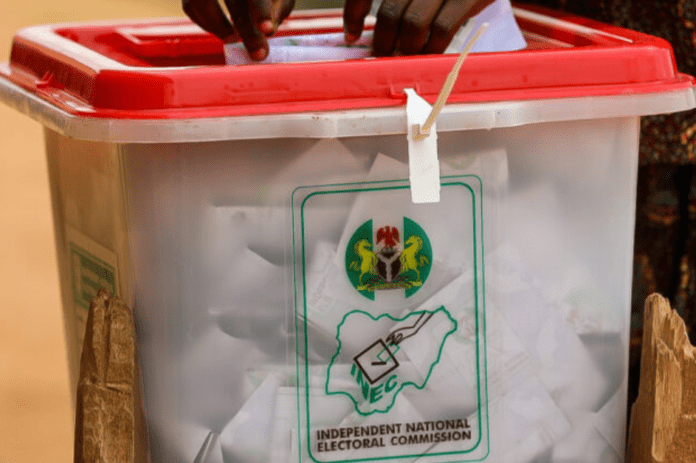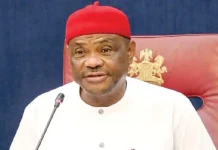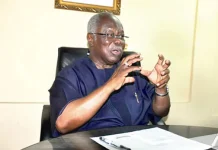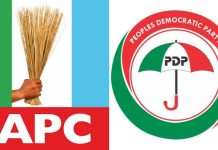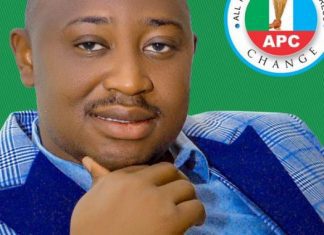The off-cycle governorship elections that took place on November 11, 2023 in the states of Bayelsa, Imo, and Kogi raised new concerns about the impartiality, honesty, and readiness of the electoral umpire and the security services to oversee free and fair elections free from malpractice and violence. Despite the fact that poll watchers concurred that the general elections this week lacked the level of violence witnessed in the February/March elections, allegations of vote-buying, deliberate disenfranchisement, result falsification, and inadequate logistics were raised during this week’s voting.
Similarly, the elections failed to meet international standards for credibility and efficiency even with the large-scale deployment of military, police, and paramilitary forces throughout the three states and the decreased level of violence reported. Rather, Nigerians suffered trauma all over again. Instead of the celebratory scenes that usually follow the results announcement elsewhere, many areas of the three states were filled with anxiety, fear, rage, and grievances.
President Bola Tinubu was also let down by the first major elections under his watch, particularly by his haste to congratulate his party’s declared winners despite protests from both opponents and onlookers.
Nigeria ought to aim for the greatest international standards. Vote-buying and other vices, such as violence, were still evident in the three states, according to real-time reports, despite INEC, the Police, and other security agencies praising themselves for the decline in documented cases of these crimes.
Read Also: FG to release 4,068 inmates from correctional centres
During a news conference in Abuja following the election, YIAGA Africa, an NGO, bemoaned the fact that INEC had squandered another chance to restore public confidence in Nigeria’s electoral system.
Free and fair elections are “the foundation of democracy and allow for free and just societies,” according to the advocacy group Civil Liberties Union for Europe. The 180-member Inter-Parliamentary Union, which states that legitimacy “can only derive from the will of the people as expressed in genuine, free and fair elections held at regular intervals,” agrees and emphasizes this crucial point.
But in Nigeria, politicians use violence, bribery, offensive weaponry, thugs, and manipulation to treat elections like a war. It’s fatal how desperate they are. According to press reports, attendance is typically low.
For example, polling observers questioned the Imo polling, which included nine polling units in Orsu, eight polling units in Okigwe, eight polling units in Oru East, seven polling units in Orlu, and one polling unit each in Ideato North, Ikeduru, Oru West, and Owerri West LGAs.
Citing field reports from its observers, YIAGA claimed that in more than 15% and 14% of polling units in Imo and Kogi states, respectively, “INEC polling officials were unprofessional and partisan.”
Eight additional groups of observers who followed the elections in Italy also reported irregularities, including vote-buying and physical attacks on voters by thugs to prevent them from exercising their right to vote.
“As seen in multiple viral videos, security agencies were involved in multiple instances of complicity wherein they compromised their duties to ensure credible elections. By doing so, they allegedly assisted and mitigated the widespread election manipulation that was seen in the Imo contest.
“There are a number of potential INEC flaws, one of which is the complete relocation of the organization without voter notification. A large number of voters in Orsu LGA were denied the right to vote because they were unaware of INEC’s intention to hold a cluster election. Who are the voters in Orsu? is the question INEC needs to respond to. Are they outsiders or Orsu natives?
“We noticed that in all 11 wards of Okigwe LGA, no result sheet was delivered to polling places. We also noticed that eight polling places were not used for the election. According to the organizations’ reports, INEC and Okigwe police authorities might need to clarify where the collation for Okigwe was completed.
Likewise, there have been reports of electoral irregularities in Kogi. Election observers expressed concern over the discovery of pre-filled results sheets in certain polling places prior to the start of voting.
In addition to acknowledging some of these irregularities, INEC promised to punish the guilty officers and canceled the results from the state’s nine wards.
A Peoples Democratic Party supporter was allegedly killed by thugs in Brass LGA, Bayelsa.
Allegations of widespread vote-buying in all three states were present during these incidents.
The Economic and Financial Crimes Commission declared that it had detained fourteen individuals in relation to vote-buying in all three of the states. Unsurprisingly, every significant loser is demanding a cancellation and accusing the other of fraud.
Nigeria serves as a poor representative of democracy. One of the main tenets of democracy is the right to freely elect representatives and leaders through regular elections that are fair, unintimidated, and free from coercion. The Election Law Journal, based in the United States, states that “votes are the ultimate currency of power in a democracy.” Selling votes, then, is giving up the final authority to select a person or group. In a nation where poverty and ruin have been the result of 24 years of civil rule, those who sell their votes for small payoffs help to further their own destitution.
It is sorrowful. The incident further tarnishes the nation’s miserable image abroad. The EFCC and the police have made a few arrests, but Nigerians are still waiting on the suspects to face charges. The offenders shouldn’t be spared from punishment. A system of electoral abuse and impunity has been ingrained in the past due to the failure to punish offenders.
The security services need to tidy up. Agency leaders need to look into, find, and discipline any of their employees who compromised in the three states. From now on, personnel should be deployed in a professional manner and make sure that no one is coerced, intimidated, or seduced into voting against their moral convictions. Money distribution or promises of it at polling places ought to be discouraged and dealt with when it does happen.
The malfeasance will not stop until the politicians who commit and encourage electoral offenses are held accountable.
Granted, the technology that INEC deployed this time around performed better, so it deserves some credit. Several reports claim that the Bi-modal Verification Accreditation System operated at 90% efficiency. This is a step in the right direction, so the commission should continue, polish its ICT instruments, and tie up any loose ends. It should develop plans with the security agencies to prevent employee collusion, vote-buying, voter suppression, and logistical problems.
As part of his legacy, Tinubu ought to make it his mission to spearhead the efforts to sanitize elections.
Next year, Edo and Ondo states will host two more off-season governorship polls; INEC and the Police should make a commitment to perform better there.
Join Television Nigerian Whatsapp Now
Join Television Nigerian Facebook Now
Join Television Nigerian Twitter Now
Join Television Nigerian YouTUbe Now

